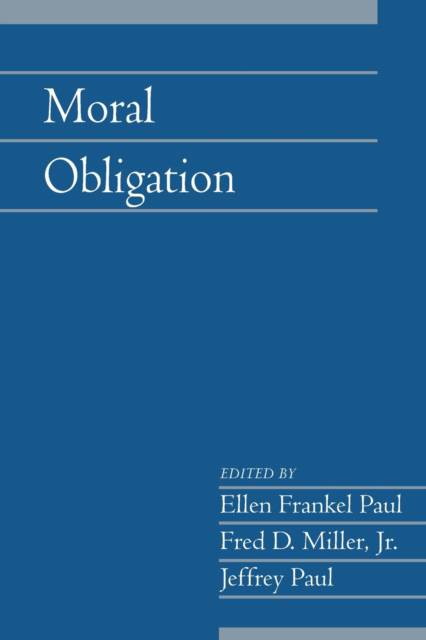
- Afhalen na 1 uur in een winkel met voorraad
- Gratis thuislevering in België vanaf € 30
- Ruim aanbod met 7 miljoen producten
- Afhalen na 1 uur in een winkel met voorraad
- Gratis thuislevering in België vanaf € 30
- Ruim aanbod met 7 miljoen producten
Zoeken
Moral Obligation: Volume 27, Part 2
€ 48,95
+ 97 punten
Omschrijving
The notion of obligation--of what an agent owes to himself, to others, or to society generally--occupies a central place in morality. But what are the sources of our moral obligations, and what are their limits? To what extent do obligations vary in their stringency and severity, and does it make sense to talk about imperfect obligations, that is, obligations that leave the individual with a road range of freedom to determine how and when to fulfill them? The twelve essays in this volume address these and other questions and explore related issues. Some of them discuss broad theoretical questions, some essays look at moral reasons for action. Others discuss specific moral obligations or the tensions that may exist between our obligations and our other concerns.
Specificaties
Betrokkenen
- Uitgeverij:
Inhoud
- Aantal bladzijden:
- 345
- Taal:
- Engels
- Reeks:
- Reeksnummer:
- nr. 27
Eigenschappen
- Productcode (EAN):
- 9780521168960
- Verschijningsdatum:
- 16/07/2010
- Uitvoering:
- Paperback
- Formaat:
- Trade paperback (VS)
- Afmetingen:
- 150 mm x 226 mm
- Gewicht:
- 521 g

Alleen bij Standaard Boekhandel
+ 97 punten op je klantenkaart van Standaard Boekhandel
Beoordelingen
We publiceren alleen reviews die voldoen aan de voorwaarden voor reviews. Bekijk onze voorwaarden voor reviews.










